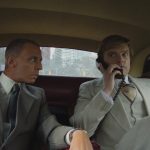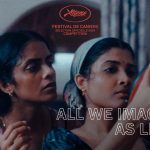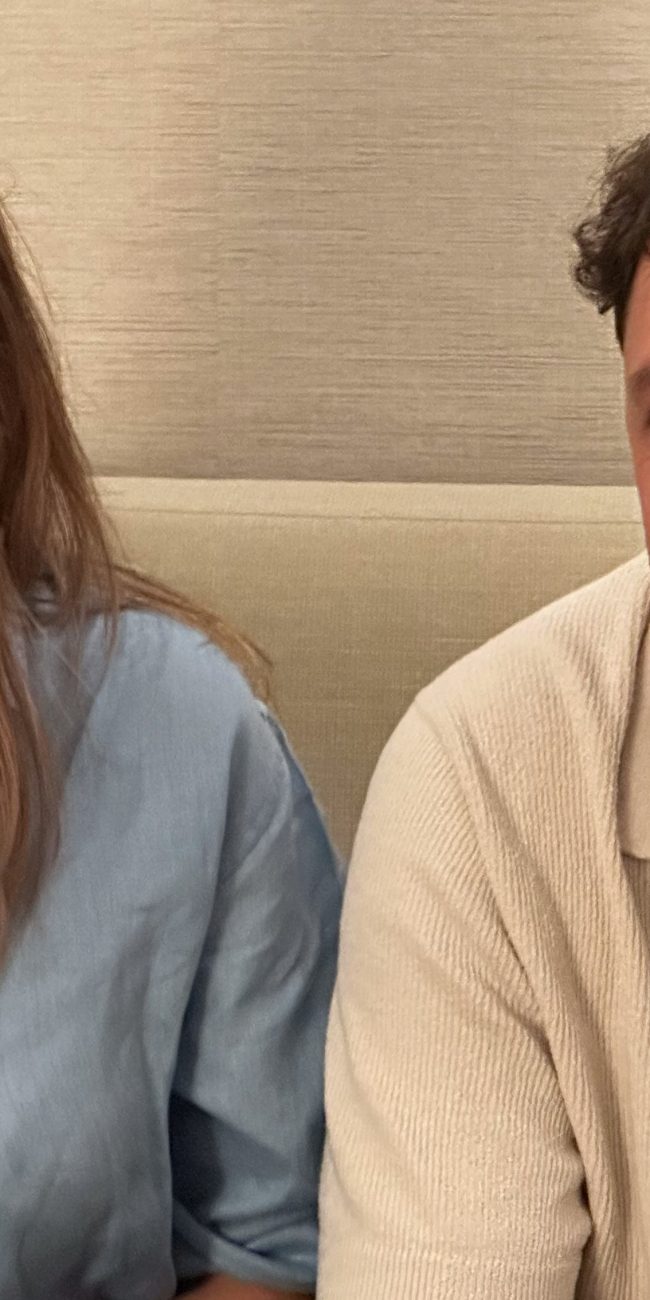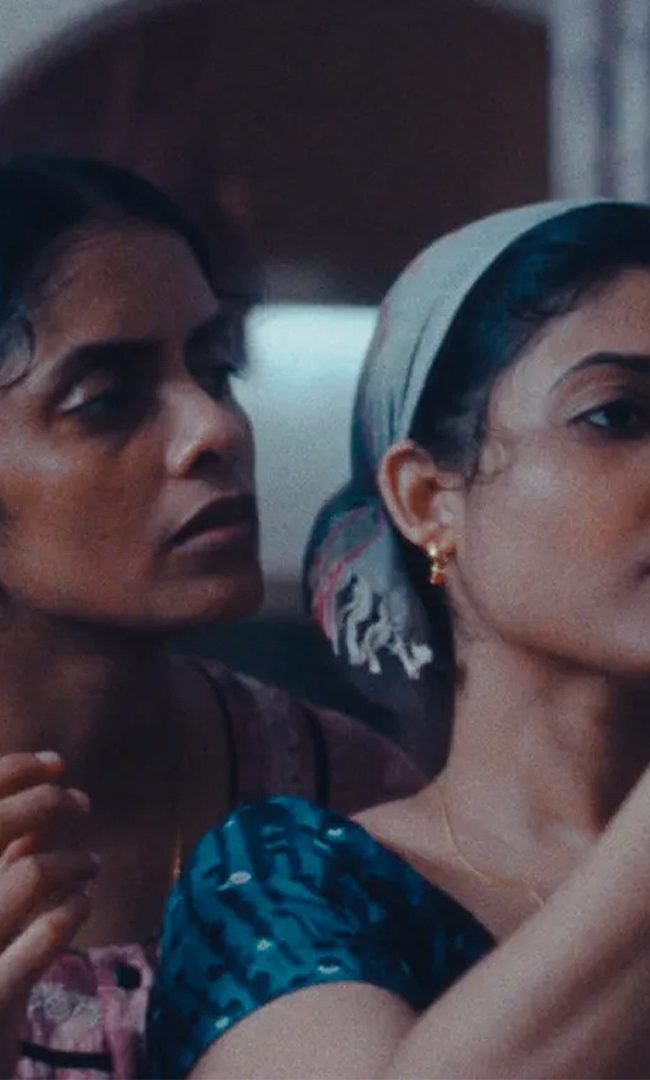A Conversation with Sinéad O’Shea (BLUE ROAD: THE EDNA O’BRIEN STORY)
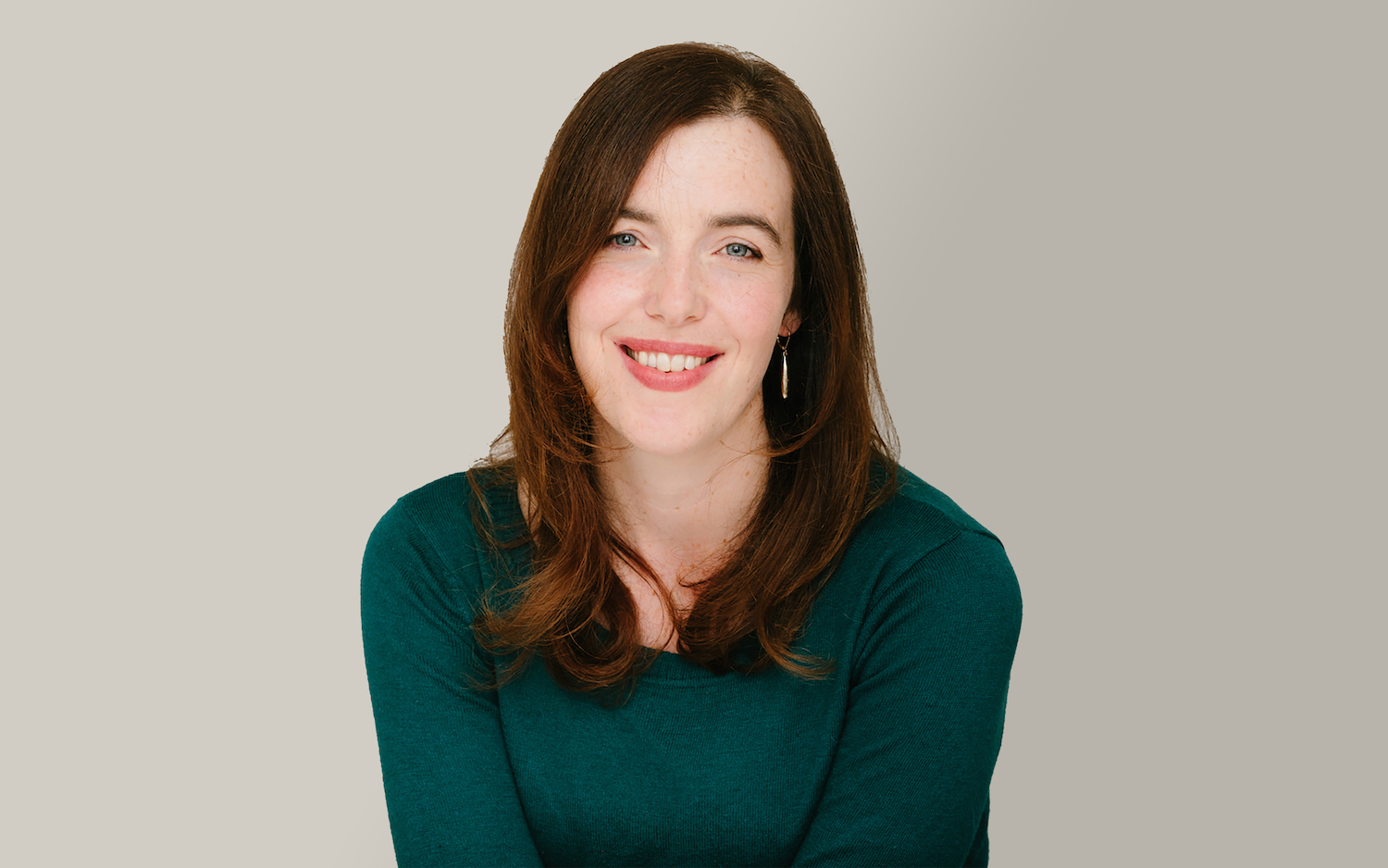
Irish documentarian Sinéad O’Shea (Pray for Our Sinners) has a new film out, Blue Road: The Edna O’Brien Story, which just premiered at the 2024 Toronto International Film Festival—aka TIFF—where I reviewed it. As per the title, it offers a comprehensive portrait of the celebrated (and controversial, to some) Irish writer Edna O’Brien, who died at the age of 93 on July 27 of this year. The author of an early trio of books—The Country Girls, The Lonely Girl, and Girls in Their Married Bliss—published in the 1960s, which spoke in frank terms about women’s sexual and romantic desires and needs, as well as about female agency, O’Brien, once she left her abusive husband, Ernest Gébler (also a writer), became the center of a vibrant social circle filled with the great celebrities (including her) of the age. I had the chance to sit down with O’Shea in person at the festival, and here is that conversation, edited for length and clarity.
Hammer to Nail: So, as I understand it, you started filming Edna O’Brien in August of 2023. How long had you wanted to make a film about her?
Sinéad O’Shea: Well, I’d interviewed her 10 years before for an American magazine called Publishers Weekly. I used to profile English and Irish writers for that, and I hadn’t really known that much about her despite studying English literature in college. All I knew of her, in fact, was that she was kind of fluffy. That was my sense of her. And so in preparation for that interview, I had to read her books. And then I realized, “Wow, these are incredible.” But also, even though they’d been written in the 1960s, they really spoke to my own experiences growing up. So I realized I made a terrible mistake in thinking that she was fluffy and irrelevant. And then I met her, and it really does remain one of the most profound encounters I’ve ever had. She was so funny and interesting and emotional and charismatic, so I really loved meeting her.
And then the summer before last, I was getting ready to come to TIFF, actually, with another film, and I was heavily pregnant, and I met a woman at an event, and I was talking about bad men and I quoted Edna O’Brien to her, and she said, “You should make a film about her. She’s my best friend.” And there was a big age gap between them, so I was like, “That’s quite strange.” But she was right. They were best friends. And so it took me about a year to track down Edna. I don’t think she really understood what feature documentaries were and she wasn’t that enthusiastic. And I asked that woman if she’d help me find Edna. And so she persuaded Edna to come on board. And that woman was Barbara Broccoli, the James Bond producer, and she urged Edna to keep going with it.
HtN: Barbara Broccoli was her best friend?
SO’S: Yeah, it turned out Edna had posted a letter through her letterbox, having found out her address through a taxi driver to ask her if she’d like to adapt one of her books into a musical, which I find very amusing and very Edna, I think, as well. So Barbara persuaded Edna to meet me, and then Edna became very enthusiastic about the project. She was admitted to hospital shortly afterwards, so she would send me these long voice memos via Barbara of her vision for the film and various titles and so on. But I knew realistically that Edna was 92 and she had cancer and she didn’t have long left. And so I needed to raise a budget and gather a team and get the film made as quickly as I could.
HtN: Well, in addition to it being really cool that you met Edna O’Brien, I think it’s really cool that you met Barbara Broccoli, as well. I know who she is, and that’s wonderful.
SO’S: A lot of documentary people haven’t heard of her, but she’s actually quite a big name in the world of drama.
HtN: I mean, her family has produced all of the James Bond films! So, I’ve never read any of Edna O’Brien’s books, I’m sad to say. Although now I want to. What would you recommend as a good book to start with?
SO’S: I actually think her first book, The Country Girls, is the best one to start with. It’s a really timeless story about a toxic friendship between a mean girl and a sweet girl in their teenage years and their burgeoning sexual exploits and feats and trying to break out of a small town and going to the big city and meeting bad men. So it’s a very likable and funny book.
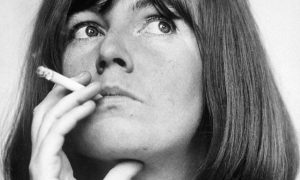
Irish author Edna O’Brien
HtN: And I noticed that Sam Neill is in the film adaptation, and I like him a lot.
SO’S: That’s so funny you should say that because later in Edna’s life, she becomes really obsessed with this awful British politician and stops writing for years, and he bears an uncanny resemblance to Sam Neill. And so when the film was being made, she was at the height of her obsession with the British politician and she kind of transferred the obsession to Sam Neill for a little while, according to her diaries. It’s very funny. (laughs)
HtN: My understanding, though, is that Sam Neill is a pretty decent human being, so that’s not a terrible person to transfer your affections to.
SO’S: No, not at all. And he’s actually quite dazzling in the film. He’s very attractive, I must say.
HtN: How did you land on Jessie Buckley as the onscreen voice of a younger O’Brien? Did you have any difficulties in getting her for the film? Probably not if you had Barbara Broccoli on board, but …
SO’S: Actually, Barbara was on the Edna side of things. She was just the person reassuring Edna that I was a quite normal person. I suppose Jessie came about because I was telling Thom Powers, who programs the documentaries here at TIFF, about my Edna idea, and I had a teaser film made, and he was like, “Maybe you should get an actor involved to help voice the diaries.” And he shared a film called The Disappearance of Shere Hite with me, which is great, by Nicole Newnham. And so I was trying to think of actors, and especially Irish actors, who could connect to that material.
And strangely—it must sound like I’m moving in glitzy circles myself, but I really don’t—the filmmaker Charlie Kaufman and his partner, Eva H.D., had somehow seen my previous film and they had made a film with Jessie Buckley. And so I asked them if they would ask Jessie if she would talk to me about doing the voiceover. And it was really easy. I just sent an email and she was extremely enthused. She’s from Kerry, which is quite close to Clare. I think every Irish woman of a certain age really understands the Edna story. I mean, to be honest, I think women all over the world really understand the Edna story.
HtN: I actually just traveled to Ireland this summer and went through both County Clare and County Kerry. Such a beautiful island! So, how did you cast the rest of your interview subjects? Because you have some really amazing people on the screen, including another actor, Gabriel Byrne. I love that section where he’s reading from Edna’s work.
SO’S: Again, I was very fortunate, because when you say to somebody, “I’m working with Edna O’Brien to make a kind of final film about her life,” people really listen. But in Gabriel’s case, strangely, he too had seen that film of mine that was at TIFF two years ago. And so he had emailed me about it, and he seemed quite nice. And then I realized he knew Edna, and not just that he knew Edna, but that he had been an advocate for her when she won this award in France. He had spoken on her behalf and had given a 40-minute speech. He knew her work intimately and he adored her. They were really close friends. So when I asked him if he’d like to participate, he was really thrilled. So that’s the Edna effect: if you’re into Edna, you’re into Edna. She’s quite divisive. There are a lot of people who don’t like her, but if you’re in, you’re in.
And Walter Mosley, he was amazing. We had no budget for the film, and so he flew himself over to New York to meet us and gave me a day because he really feels Edna changed his life and that she was the person who enabled him and empowered him to write. It’s so beautiful, their relationship. So Edna has that effect on people, and people wanted to testify.
HtN: I love that section with Walter Mosley, as well. I’m a fan of his work, and I had no idea that she had been teaching in the United States and taught him. So that’s really quite lovely. Now, there’s a lot of wonderful archival of O’Brien because she sat for so many TV interviews and then she was a celebrity in her time. So what was it like sifting through what must’ve been countless hours of this footage and deciding what would go in your film?
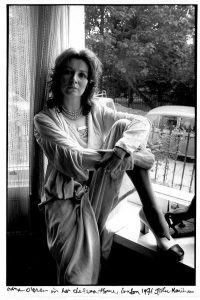
A still from BLUE ROAD: THE EDNA O’BRIEN STORY
SO’S: Well, I had some help with this. Thankfully. We had a wonderful archive producer, Paul Bell, who worked on the documentaries Amy and Senna, with Asif Kapadia, and so he had great contacts within the BBC and ITV. I’d seen quite a bit of stuff, myself, on YouTube, so I knew there was good material out there. I didn’t realize how good it was until Paul became involved. So that was great.
For me, the most magical piece of archive is this film that her own teenage son at the time, Carlo, made called “Night,” which is basically a visualization of one of her books, Night, which is in itself quite an autobiographical book. So basically his film becomes, in its way, a documentary. And so we were able to move in and out of that a lot. It’s beyond a gift for a documentary maker. It was really beautiful. So that was wonderful. And then we had the diaries, because when Edna became very enthused about the project, she directed me to Emory College in Georgia to read the most naked ones. And I had a wonderful producer, Claire McCabe, who went over and photographed thousands of pages and sent them back to me to transcribe. And then we had a whole little team of transcribers.
HtN: Why are her diaries in Emory College in Atlanta, Georgia?
SO’S: She needed the money. (laughs) There’s a whole world of university archives. You sell things, basically. So they were the best ones. And Emory College acquired those.
HtN: I do love that film by Carlo, the clips we see in your film. So, were her sons willing participants in the movie from the start, Carlo and Sasha?
SO’S: Yeah, they were. Which is surprising because I think their family life was complex, and I hope they like it; they actually haven’t seen it yet. We did a screening in London two weeks ago, and neither of them could come. I think they’re brilliant in the film. They’re so moving. And maybe there was something cathartic—especially for Carlo—to describe the home life in the way that he did. Carlo has actually written two books about his father, so he’s very interested in the family history. And then Sasha—and I hadn’t realized this—had worked very closely with his mother on her books over the last years. So it’s a very interesting family. It’s a very interesting lineage.
HtN: Speaking of the father, the abusive and controlling Ernest …
SO’S: (laughs) He’s such a kind of cartoon villain.
HtN: Yeah, he really is. But before he met Edna, he had, himself, written a book called The Plymouth Adventure, and you have a brief clip from the movie, starring Spencer Tracy. It’s about the Mayflower crossing. Do you have any sense of whether that’s actually a good book or if the movie is interesting? I’ve neither read the book nor seen the movie.
SO’S: I haven’t read the book either, but it’s interesting because it was hugely successful. I think it sold nearly 5 million copies in the US and it was big, and then it was adapted into this Spencer Tracy movie. But I think Ernest Gébler ‘s intentions were quite interesting because he set out to write a successful historical fiction book. He had this idea and he realized that’s really marketable. But then over the years with Edna, he says she’s obsessed with success and that she’s exploiting, she wants to be on chat shows, and he was always undermining her success, but actually he had started out quite overtly, himself. And I think, in a weird way, it was a kind of projection that he was, I think, quite uneasy about that book.
HtN: And, of course, he was jealous of her.
SO’S: Oh, he was unbelievably jealous of her. It was kind of amazing to be so overt. Most people are a bit subtle. He really was crazy.
HtN: As you say, he’s a cartoon villain. You can almost see him twirling his mustache. So, Edna O’Brien clearly led a passionate, full life. What would your hope be that someone who maybe didn’t know Edna O’Brien before would take away from this movie?
SO’S: I think I’d like them to know that here was one of the great lives of the 20th century. What an amazing life! I’d like them to engage with her writing because it’s brilliant; it’s of a really high standard. And I guess, as well, I’d like people to engage with the idea of what a female artist is and can be and should be, because Edna was subjected to very different standards compared to her male peers. Norman Mailer stabbed his first wife, but there were headlines about Edna interviewing somebody from Sinn Féin and the IRA. She was constantly criticized. It was totally acceptable for a writer in Ireland to say that he wanted to put a hatchet through her head. It was really wild. And I think she is a complex person, and she is actually quite difficult in some ways. She’s inconsistent, she’s grandiose, she’s stately, she’s extravagant. She’s also a genius. She’s the funniest, most charismatic person any of us will probably ever meet. And I think that should be allowed. I think that’s permissible.
HtN: Absolutely. Well, thank you very much for talking to me, and I wish you all good things with the film.
SO’S: Thank you!
– Christopher Llewellyn Reed (@ChrisReedFilm)


